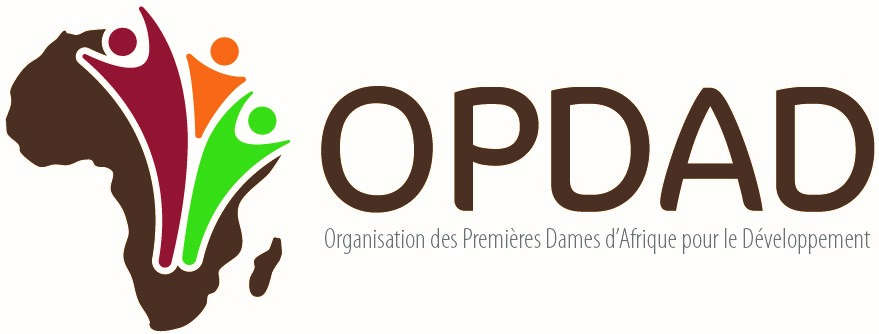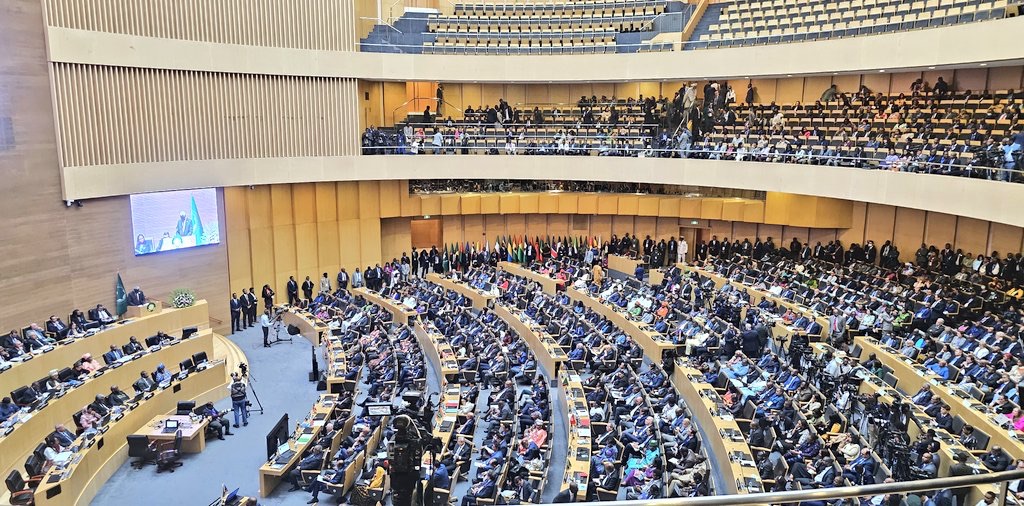Official decisions of the just-ended African Union Summit will not be available for several weeks as per the practice, but based on intel, comments by delegations, and corridors discussions, here are what seem to be the 7 key outcomes of the Summit held in Addis Ababa, Ethiopia, from the 14th – 18th February 2024.
The theme of the Summit and the year 2024 is: “Educate an African Fit for the 21st Century: Building Resilient Education Systems for Increased Access to Inclusive, lifelong, quality, and Relevant Learning in Africa.”
The Summit adopted a Road Map on the theme devoted to Education and called upon the African Union Commission, AUDA-NEPAD, Regional Economic Communities, United Nations organizations, Development Partners, Civil Society Organizations, the Youth, and all other stakeholders to continue strengthening their support to Member States by facilitating the implementation of the roadmap.
The following issues have actually dominated the discussions at the Summit:
1/ Multilateralism & International Governance
Africa at the UN Security Council
The African Union reiterated that full representation of Africa in the reformed United Nations Security Council means:
i) Not less than two (02) Permanent seats with all the prerogatives and privileges of Permanent membership, including the right of veto.
ii) Five (05) Non-permanent seats.
iii) The African Union reserves the right to select its representatives for election to the UN Security Council to act in its name and on its behalf.
Proposed Modalities for the Participation of the African Union in the G20 and Preliminary Priorities
Participation in the Leaders’ Summit:
- The Chairperson of the African Union, assisted by the Chairperson of the African Union Commission, will represent the African Union (previously decided)
- The Chairperson of the Commission to propose positions to the Assembly to be advanced as African Common positions in the G20 Leaders’ Summits.
- The Chairperson of the African Union, assisted by the Chairperson of the Commission to debrief the Assembly on the outcomes of the G20 Leaders’ Summits at the February sessions of the Assembly each year.
Participation in Ministerial meetings
- The Chairperson of the African Union Executive Council, assisted by the Chairperson of the Commission to represent the African Union in the G20 Meetings of the Ministers of Foreign Affairs.
- The Chairpersons of the AU Specialized Technical Committees, assisted by the respective Commissioners, to lead African Delegations to G20 sectoral Ministerial Meetings
- The Chairperson of the Specialized Technical Committees (STC) on Finance, Monetary Affairs, Economic Planning, and Integration, assisted by the Commissioner for Economic Development, Trade, Tourism, Industry, and Minerals to attend the meetings of the G20 Finance Ministers and Central Bank Governors, assisted by the respective Commissioner(s);
- The Ministerial Representatives to the G20 to propose draft African common positions through the Specialized Technical Committees for consideration by the Executive Council before it is advanced in the G20 Ministerial meetings and Leaders’ Summits
Sherpa and Sous Sherpa
- The Chairperson of the African Union to appoint a Sherpa. As the AU G20 contact point, the Sherpa shall coordinate with the Chairperson of the African Union Commission and the AU Member States on the positions to be advanced in the various G20 Ministerial, Task Forces and Working Group meetings to ensure that the African Union prepares common positions ahead of each G20 meeting and speaks with one voice in the G20 meetings;
- The Chairperson of the Commission to appoint a Sous-Sherpa to: (a)Act as liaison between the Commission and the Chairperson of the Union; (b)Work with and Deputize the Sherpa; (c)Report to the Chairperson of the Union on G20 matters.
South Africa, the only current African permanent member of the G20, will share lessons of experience in the G20 with the African Union.
Africa’s preliminary priorities at the G20 will be as follows: the reform of the international financial architecture, debt restructuring, food security and agriculture, energy transition, trade and investments, improving Africa’s credit rating to boost investment, health, and vaccine manufacturing.
Financing AU participation in the G20
African Development Bank (AfDB) and the African Export-Import Bank (Afreximbank) pledged to provide initial financing for the participation of the African Union in the G20.
Delegation of Power: The Executive Council (Foreign Ministers) will deal with G20 issues on behalf of the Assembly during its July Ordinary Sessions of the Council and, when necessary, convene extraordinary sessions.
2/ Election of the new leadership of the AU Commission (February 2025)
The Summit discussed the principles of inter-and intra-regional rotation following the English Alphabetical order under the decision Ext/Assembly/AU/Dec.1(XI) adopted during the 11th Extraordinary Session in November 2018 on the institutional reform of the Union as well as Article 14 of the revised Statute of the Commission.
If this is implemented, candidacies should be submitted based on a predictable inter-regional rotation with the allocation of specific portfolio(s) to regions as follows for the next election:
For example, considering the upcoming elections, if this principle is applied, we would have the following conditions for each position:
1. Chairperson of the AUC – Only the Eastern region may submit candidates.
2. Deputy Chairperson – Only the Northern region may submit candidates.
3. Agriculture, Rural Development, Blue Economy, and Sustainable Environment – Only the Southern region may submit candidates.
4. Economic Development, Trade, Industry, and Mining – Only the southern region may submit candidates.
5. Education, Science, Technology, and Innovation – Only the Western region may submit candidates.
6. Infrastructure and Energy – Only the Western region may submit candidates.
7. Political Affairs, Peace & Security – Only the Central region may submit candidates.
8. Health, Humanitarian Affairs, and Social Development – Only the Central region may submit candidates.
At this time, it is unclear whether the AU will go with this principle for the upcoming elections.
3/ Institutional Reform of the African Union: President Kagame steps down, and President Ruto takes over.
Frustrated by what most analysts call the “failure of the AU institutional reform” 6 years after the beginning of the process, President Paul Kagame decided to step down from championing the project. The Summit then appointed President William Ruto of Kenya as the new AU Champion on Institutional Reform. The remaining reform priorities are to be finalized by February 2025.
4/Peace and Security
The following situations have been discussed with no major decisions:
The tension between Ethiopia and Somalia, Sudan, South Sudan, Burkina Faso, Niger Mali, Gabon, Sierra Leonne, DRC-Rwanda, Central Africa Republic, Lac Chad Basin, and some thematic issues.
5/ The Theme of the year 2025 has been proposed to be: ‘‘Justice for Africans and People of African Descent Through Reparations’’.
The reparations for transatlantic enslavement, colonialism and apartheid, as a Flagship Issue and Project of the Union. The Commission is to submit a strategic framework document for the implementation of the Accra Proclamation on the same.
6/ Appointments
- Chairperson of the African Union for 2024: Mauritanian Présidente Mohamed Ould Cheikh El Ghazouani. Angola is likely to take over in 2025.
- Champion of the institutional reform of the AU: President William Ruto of Kenya
- Champion for local manufacturing of pharmaceutical and non-pharmaceutical products, President Ruto from Kenya
- Leader in Advancing the Cause of Justice and Payment of Reparations to Africans, enhancing advocacy for a common position on reparations in Africa, and forging a common front for Africa and the Diaspora at the global level: President Nana Akufo-Addo of Ghana
- Mr. Wamkele Mene of South Africa was reappointed as Secretary General of the AfCFTA Secretariat for another four years.
10 new members of the Peace and Security Council for a term of 2 years:
1. Democratic Republic of Congo, Central Africa region
2. Equatorial Guinea, Central Africa region
3. Tanzania, Eastern Africa region
4. Uganda, Eastern Africa region
5. Egypt, Northern Africa region
6. Angola, Southern Africa region
7. Botswana, Southern Africa region
8. Côte d’Ivoire, Western Africa region
9. Sierra Leone, Western Africa, region
10. The Gambia, Western Africa region
7/ Calendar
2025 Summit of the AU
- Executive Council, 12th and 13th February 2025;
- 38th Ordinary Session of the Assembly, 15th and 16th February 2025
Special Summit to consider the post-Malabo CAADP implementation plan: November 2024

